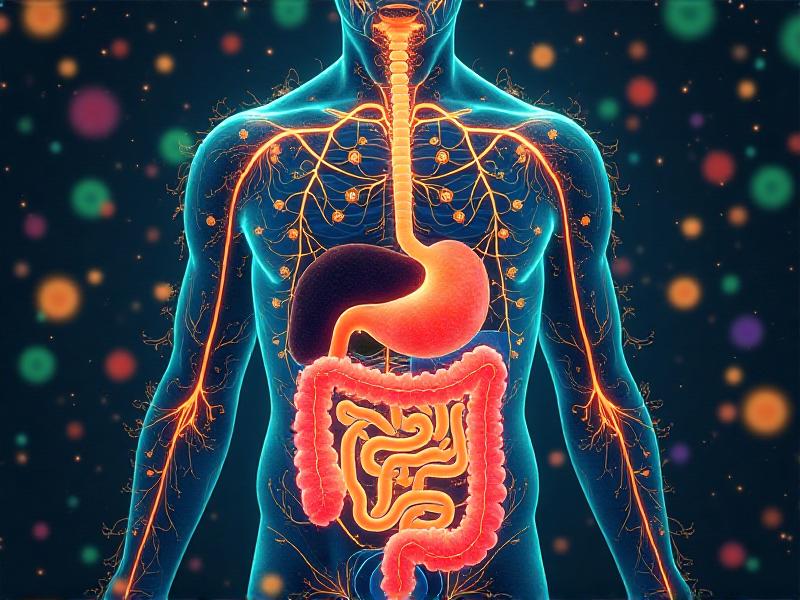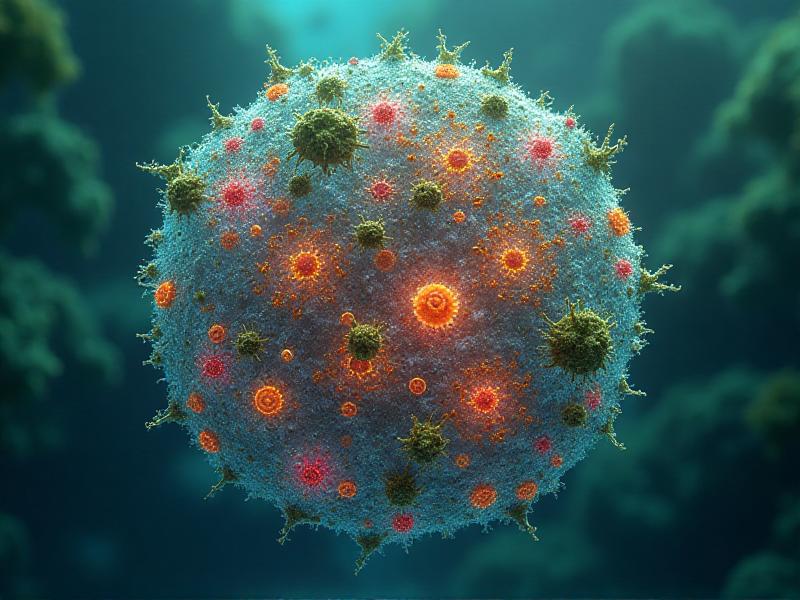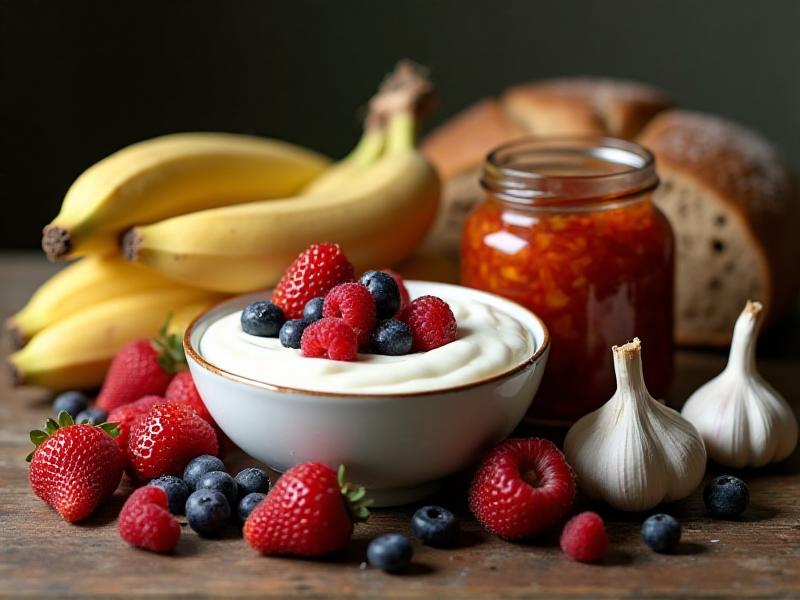Let's Talk Microbes: Your Mental Health's Secret Weapon
The Gut-Brain Connection: How Microbes Influence Your Mind
For centuries, the gut was considered a simple digestive organ, but modern science has revealed its profound connection to the brain. This relationship, known as the gut-brain axis, is a two-way communication system where microbes play a starring role. The trillions of bacteria, viruses, and fungi living in your gut—collectively called the gut microbiome—produce neurotransmitters, hormones, and other chemicals that directly impact your brain. For instance, about 90% of serotonin, the "feel-good" neurotransmitter, is produced in the gut. This means that your mental health is deeply intertwined with the health of your microbiome.
Research has shown that an imbalanced gut microbiome, known as dysbiosis, is linked to conditions like anxiety, depression, and even neurodegenerative diseases. On the flip side, a healthy gut can enhance mood, reduce stress, and improve cognitive function. The key lies in fostering a diverse and balanced microbiome through diet, lifestyle, and even targeted therapies like probiotics. By understanding the gut-brain connection, we can unlock new ways to support mental health and well-being.

Meet Your Microbiome: The Tiny Organisms Shaping Your Mental Health
Mostly living in your gut, your microbiome is a busy ecology of bacteria found on and in your body. These bacteria actively participate in your wellness, not just passive occupants. They help digest food, produce vitamins, regulate the immune system, and even influence your mood and behavior. Everybody's microbiome is different and shaped by elements like genes, diet, surroundings, and way of life.
Interestingly, the composition of your microbiome can change over time, influenced by what you eat, how you sleep, and even your stress levels. For example, a diet rich in fiber and fermented foods can promote the growth of beneficial bacteria, while a diet high in sugar and processed foods can lead to an overgrowth of harmful microbes. By nurturing your microbiome, you can create an environment that supports both physical and mental health. Think of it as tending to a garden—what you feed it determines what grows.

Probiotics and Prebiotics: Feeding Your Brain Through Your Gut
Probiotics and prebiotics are two powerful tools for optimizing your gut microbiome and, by extension, your mental health. Probiotics are live beneficial bacteria found in fermented foods like yogurt, kefir, sauerkraut, and kimchi. When consumed, they can help restore balance to your gut microbiome, especially after disruptions like antibiotic use or illness. Prebiotics, on the other hand, are non-digestible fibers that serve as food for your gut bacteria. Foods rich in prebiotics include garlic, onions, bananas, and whole grains.
Prebiotics and probiotics taken together help to create a good gut environment. Studies have indicated that several probiotics, including Lactobacillus and Bifidobacterium, can help with anxiety and depression. Conversely, prebiotics enable these helpful bacteria to flourish, therefore fostering a positive feedback loop supporting mental health. Including both into your diet is a straightforward but efficient approach to use the power of bacteria for improved mental health.

The Role of Stress: How Microbes Respond to Your Emotions
Stress is an inevitable part of life, but its impact on your gut microbiome can be profound. When you're stressed, your body releases cortisol and other stress hormones, which can alter the composition of your gut bacteria. This, in turn, can affect your mood and mental health. Chronic stress has been linked to a reduction in beneficial bacteria and an increase in harmful ones, creating a vicious cycle that exacerbates stress and anxiety.
However, the relationship between stress and the microbiome is bidirectional. Just as stress can disrupt your gut, a healthy gut can help you better manage stress. Certain gut bacteria produce compounds like gamma-aminobutyric acid (GABA), which has a calming effect on the brain. By supporting your microbiome through stress-reducing practices like mindfulness, exercise, and a balanced diet, you can break the cycle and promote resilience in both your gut and your mind.

Microbes and Mood Disorders: A New Frontier in Mental Health Treatment
The link between the gut microbiome and mood disorders like depression and anxiety is one of the most exciting areas of research in mental health. Scientists are discovering that specific strains of gut bacteria can influence brain chemistry and behavior. For example, studies have found that people with depression often have less diversity in their gut microbiome compared to those without the condition. This has led to the development of "psychobiotics"—probiotics specifically designed to improve mental health.
While the field is still in its early stages, the potential for microbiome-based treatments is immense. Imagine a future where mental health conditions are managed not just with traditional therapies, but also with personalized probiotic regimens tailored to an individual's unique microbiome. This holistic approach could revolutionize how we understand and treat mental health, offering hope to millions of people worldwide.

Practical Tips for Cultivating a Healthy Microbiome
So, how can you take charge of your microbiome and, in turn, your mental health? Start by focusing on your diet. Incorporate a variety of fiber-rich fruits, vegetables, and whole grains to feed your gut bacteria. Add fermented foods like yogurt, kefir, and kombucha to introduce beneficial probiotics. Avoid excessive sugar and processed foods, which can promote the growth of harmful bacteria.
Beyond diet, prioritize stress management through practices like meditation, yoga, or regular exercise. Get enough sleep, as poor sleep can negatively impact your microbiome. Finally, consider consulting a healthcare professional about probiotic supplements, especially if you're dealing with specific mental health challenges. Small, consistent changes can make a big difference in nurturing a healthy microbiome and supporting your mental well-being.

The Future of Microbiome Research: What’s Next?
The study of the gut microbiome is still in its infancy, but the possibilities are endless. Researchers are exploring how microbes influence everything from autism to Alzheimer's disease. Advances in technology, such as DNA sequencing and artificial intelligence, are enabling scientists to map the microbiome in unprecedented detail. This could lead to personalized treatments based on an individual's unique microbial profile.
As we continue to unravel the mysteries of the microbiome, one thing is clear: these tiny organisms have a big impact on our lives. By understanding and nurturing our microbiome, we can unlock new ways to improve mental health, prevent disease, and enhance overall well-being. The future of medicine may very well lie within us—in the trillions of microbes that call our bodies home.









